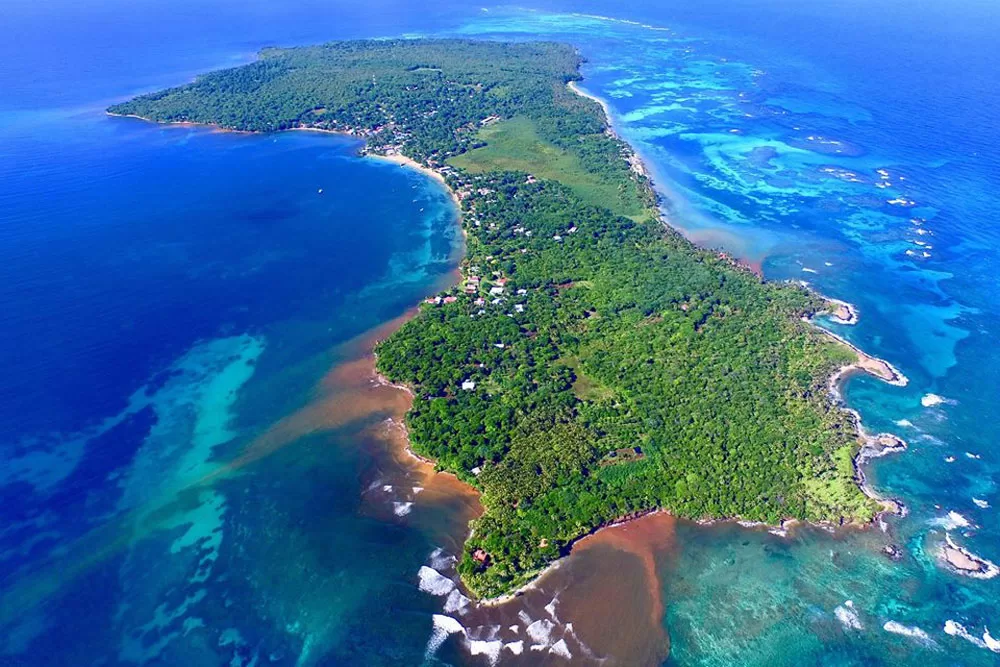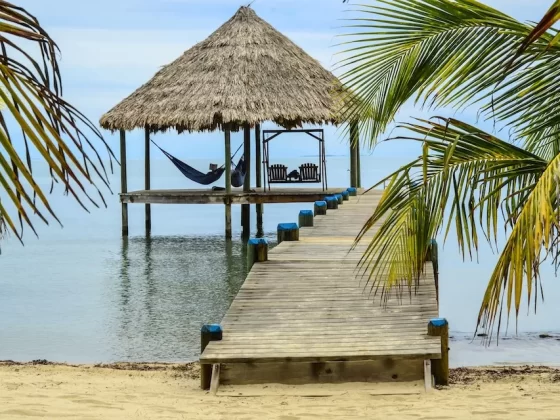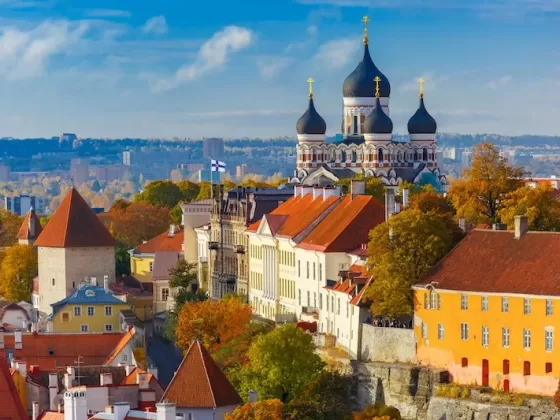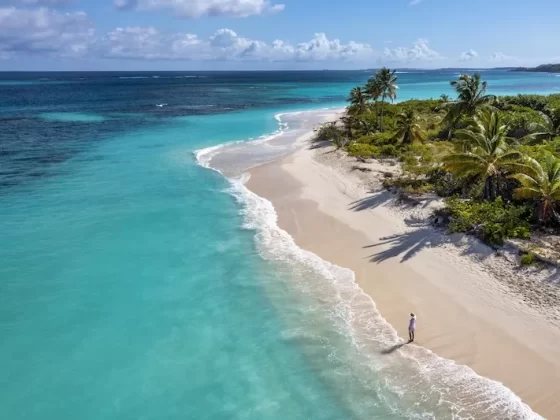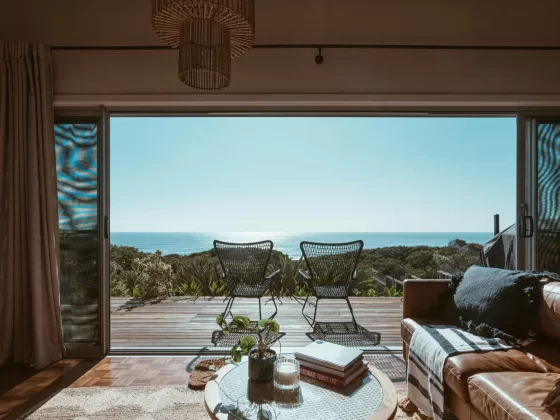With North America heading into winter, a lot of folks are looking to get away to someplace warm. For more adventurous souls, I’ve got the perfect Caribbean paradise.
Getting to Little Corn Island
Little Corn Island, just 40 miles off the coast of Nicaragua, is so small it can only host 250 visitors at a time, ensuring a level of tranquility that’s ideal for beach relaxation.
A popular vacation spot for Nicaraguans, this tropical isle is little-known outside the country, perhaps because getting there takes some doing. But it’s worth it, because Little Corn offers an incredibly relaxed vibe and some of the world’s most stunning and secluded beaches.
Journey to the Island
From the Nicaraguan capital of Managua, you first need to take a 90-minute flight to Big Corn Island (at about $160 roundtrip). Once there, you have two options to get to Little Corn: the barge or the “panga.”
Both cost $6, but the experiences are radically different. The first time I went to Little Corn we took the barge, which is a large boat and makes for a smooth and easy one-hour crossing.
However, when the barge is booked or unavailable, your next option is the panga. It’s basically a large inflatable raft, with wooden slats for seating and a clear tarp overhead to catch splashing water. There’s no way to sugar coat it: the panga crossing is rough.
Read More on Monkeying Around in Nicaragua
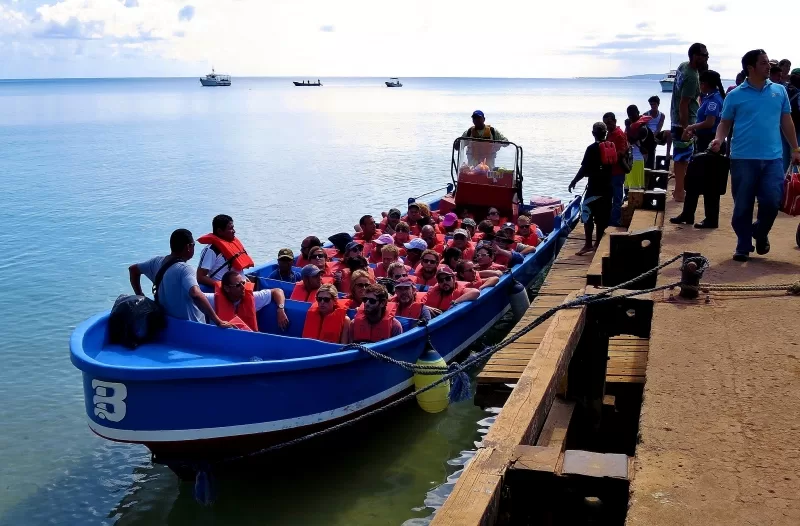
Bouncing from wave to wave in a low boat on the open sea, salt water splashing your face, is either great fun or absolutely terrifying, depending on your view of adventure. On our recent visit to we hopped on the day’s first panga to Little Corn and headed out into rough seas.
We rode the swells of massive waves, smacked and jostled as the boat climbed steep inclines before plunging even more steeply down. We had to hold tightly to the tarp, along with other passengers, to keep ourselves dry and to keep it from flying away.
It felt like at any moment the boat would capsize or fill with water and sink. Finally, after 45 minutes of adrenaline and terror, we reached Little Corn—drenched, exhausted, thoroughly seasick, and very happy to be alive. And in paradise.
Just one and a half square miles and shaped a bit like a drumstick, Little Corn Island has no cars, motorcycles, or even roads. A wide walking path circles the island and the only means of transport are bicycles and feet.
Island Life
Some 800 locals speak Creole English and Spanish. The weather ranges from warm to hot—68 degrees in January to 95 in May—with the dryer months running from early winter through late spring.
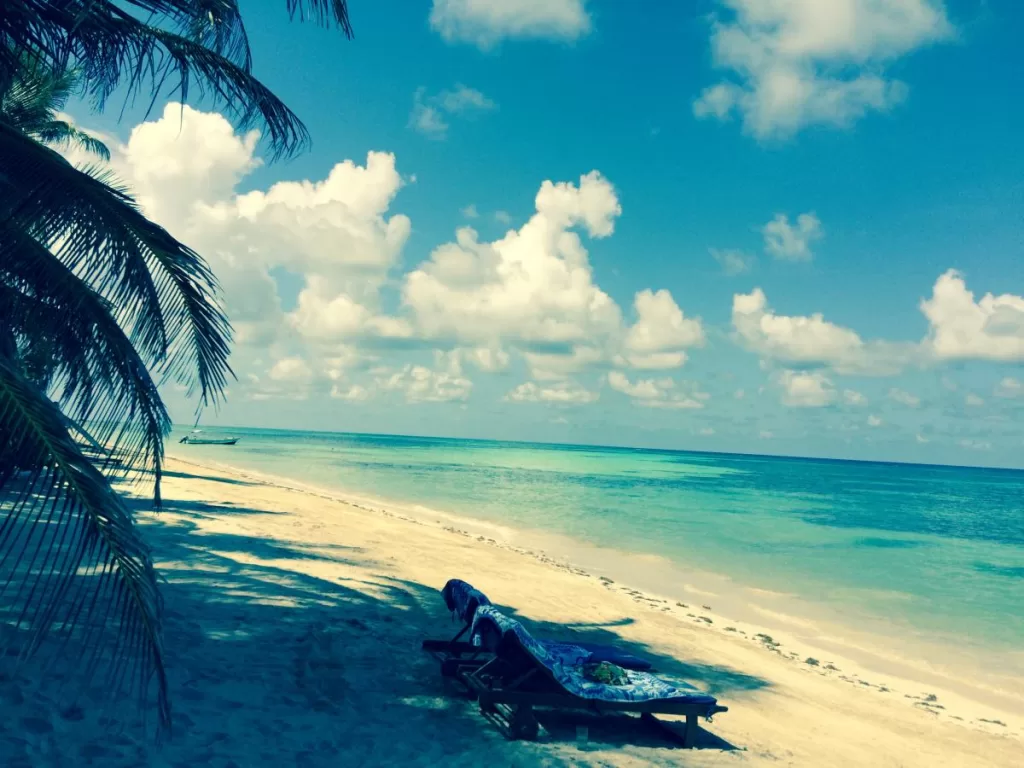
In a region famous for knowing how to relax, Little Corn has one of the Caribbean’s most laid-back vibes—a world away from the hustle and bustle of Managua or any U.S. city.
Where to Stay
Although the capital and the island share the same tropical climate, on Little Corn it’s easy to forget you’re in Nicaragua. White beaches are surrounded by crystal clear waters and scattered with coconut palms. Accommodations range from upscale hotels to youth hostels.
Some of the more popular lodging options include Little Corn Island Beach and Bungalow, Ensuenos, the Lighthouse and Los Delfines. The island’s most upscale option is Yemaya, a luxury resort at the northern tip, which runs about $300 a night.
Little Corn Island Beach & Bungalow is probably the best option for visitors looking to be steps away from the ocean, relax in beachside hammocks and sleep in thatched cabanas. They offer yoga classes and spa services, and the restaurant serves fresh meals and drinks all day.
They’ll even deliver your delicious margaritas right to your hammock.
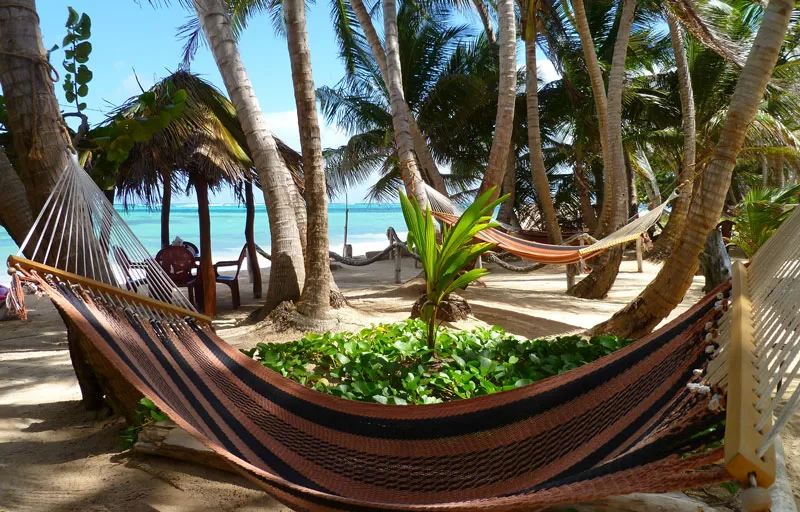
The island has several hostels and other affordable options as well, such as Stedman’s at $10 a night, Shell Hostel at $10 a night, and Elsa’s at $20 a night.
While seafood and fruit like mangos and coconuts are always cheap, fresh, and abundant, most of the island’s food supplies are delivered by boat from the mainland, which makes food a bit more expensive than in the rest of Nicaragua.
Popular restaurants include Cafe Desideri, a great Italian dinner spot, Tranquilo Cafe, great for lunch and smoothies, and The Turned Turtle, where you cannot miss the Nica Breakfast with eggs, gallo pinto and their famous coconut cinnamon toast.
Besides eating, the thing to do in Little Corn is relax. The pace is so slow and the sea views so calming, it’s the perfect place to forget your troubles and do nothing. And with limited wifi and cell service, Little Corn offers the perfect opportunity to unplug and enjoy.
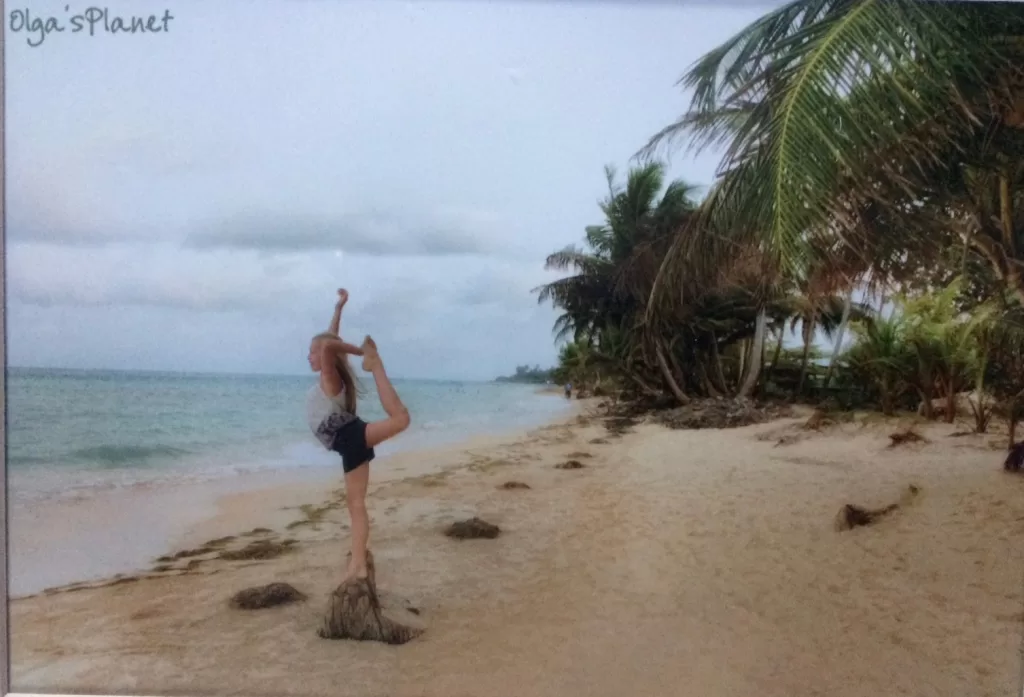
I found my favorite spot soon after we arrived: relaxing in a hammock, under the cool shade of palm tree, with an open coconut in one hand and a good book in the other.
If you get restless, Little Corn offers endless activities. Swimming in crystal clear waters, snorkeling around coral reefs, fishing, paddle boarding, and more. In fact, the island has one of the Caribbean’s most affordable SCUBA certification courses, at Dive Little Corn.
Yoga classes, massages, and spas are also available at many of the resorts. One of my favorite activities is to walk around the entire island, easily done in a few hours. Little Corn’s little quirks only add to its charm.
Read More on Travel Necessities
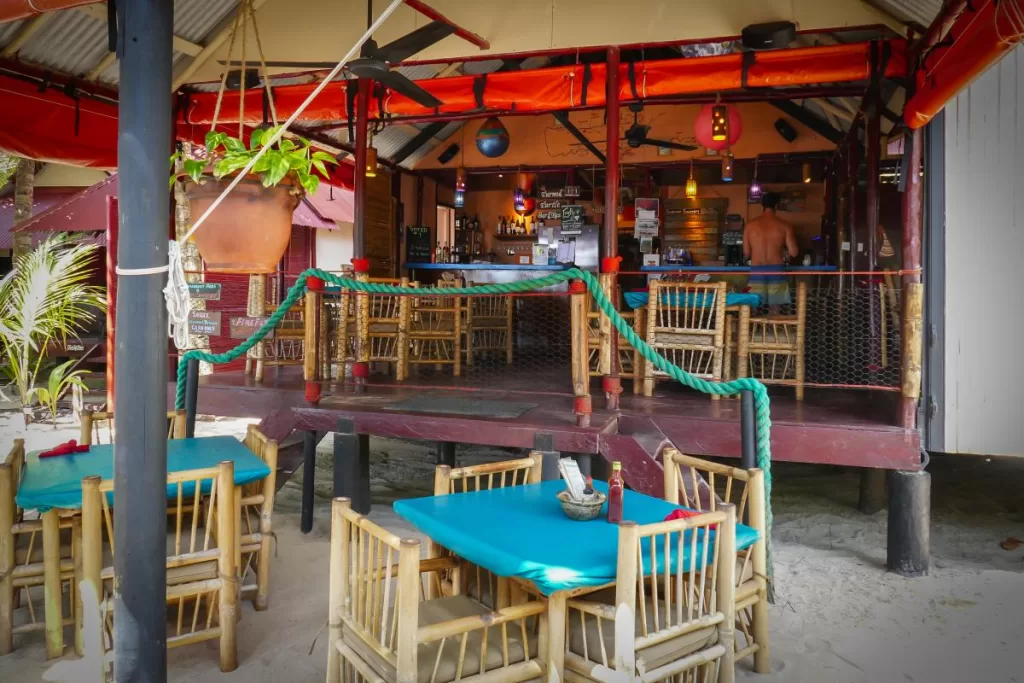
Currency and Local Culture
Nicaragua’s currency is the Cordoba, but US$ are accepted as long as they’re not too wrinkled, torn, or damaged. Credit cards are rarely accepted in Little Corn, so it is highly recommended to bring enough cash for your time on the island.
Colonized by the British, the Corn Islands were pirate bases for centuries. People are friendly and helpful no matter where you go in Nicaragua, but they’re far more laid back on the Caribbean coast, and particularly on Little Corn.
If you agree to meet a local for drinks at 7pm, be prepared to have a couple drinks on your own before your company arrives. Islanders are very informal. Accustomed to the casual appearance of tourists, they tend to dress fairly casually themselves.
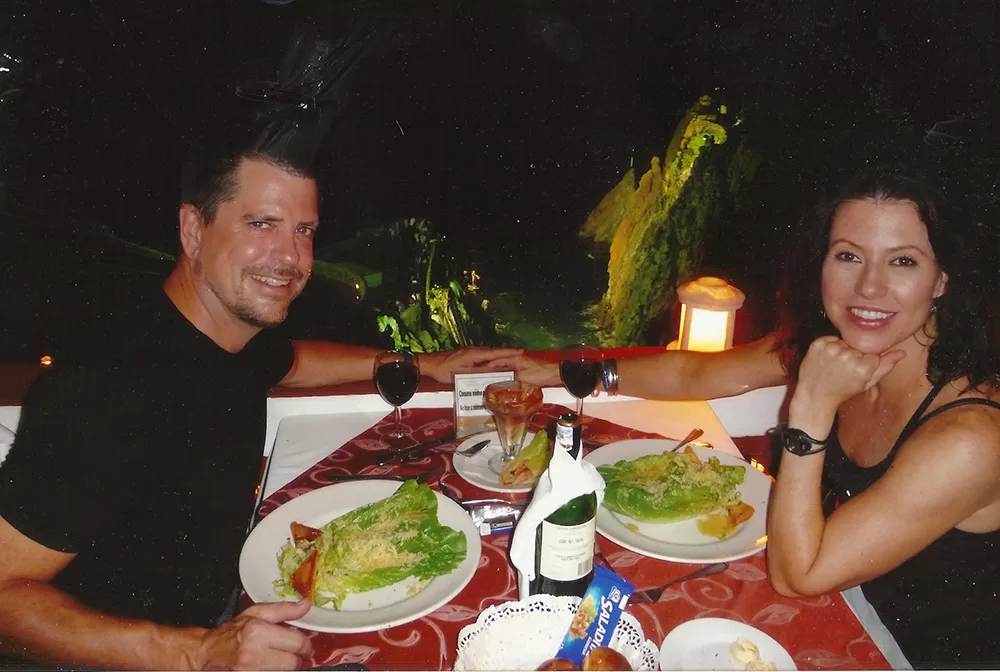
You simply do not know true relaxation until you’ve whiled away a handful of days on this tiny, beautiful island. There is something about the white sand beaches, sparkling turquoise water, and the peaceful environment of Little Corn that makes for a calming, unforgettable experience.
It’s great for a solo getaway, family vacation, or honeymoon. But Little Corn is not exactly the lap of luxury. If you’re unable to deal with limited connectivity, water cuts, power outages, and a harrowing boat ride, this may not be the place for you.
But if you’re the type who enjoys a bit of adventure with their relaxation, Little Corn is probably just what you’re looking for.
Ready to hit Little Corn Island but worried about that panga ride? Fear not! Now you can get comprehensive travel insurance with Safety Wing.
————————
Annapolis-based Amanda Cobb is a professional ballet dancer with the Ballet Theatre of Maryland.
